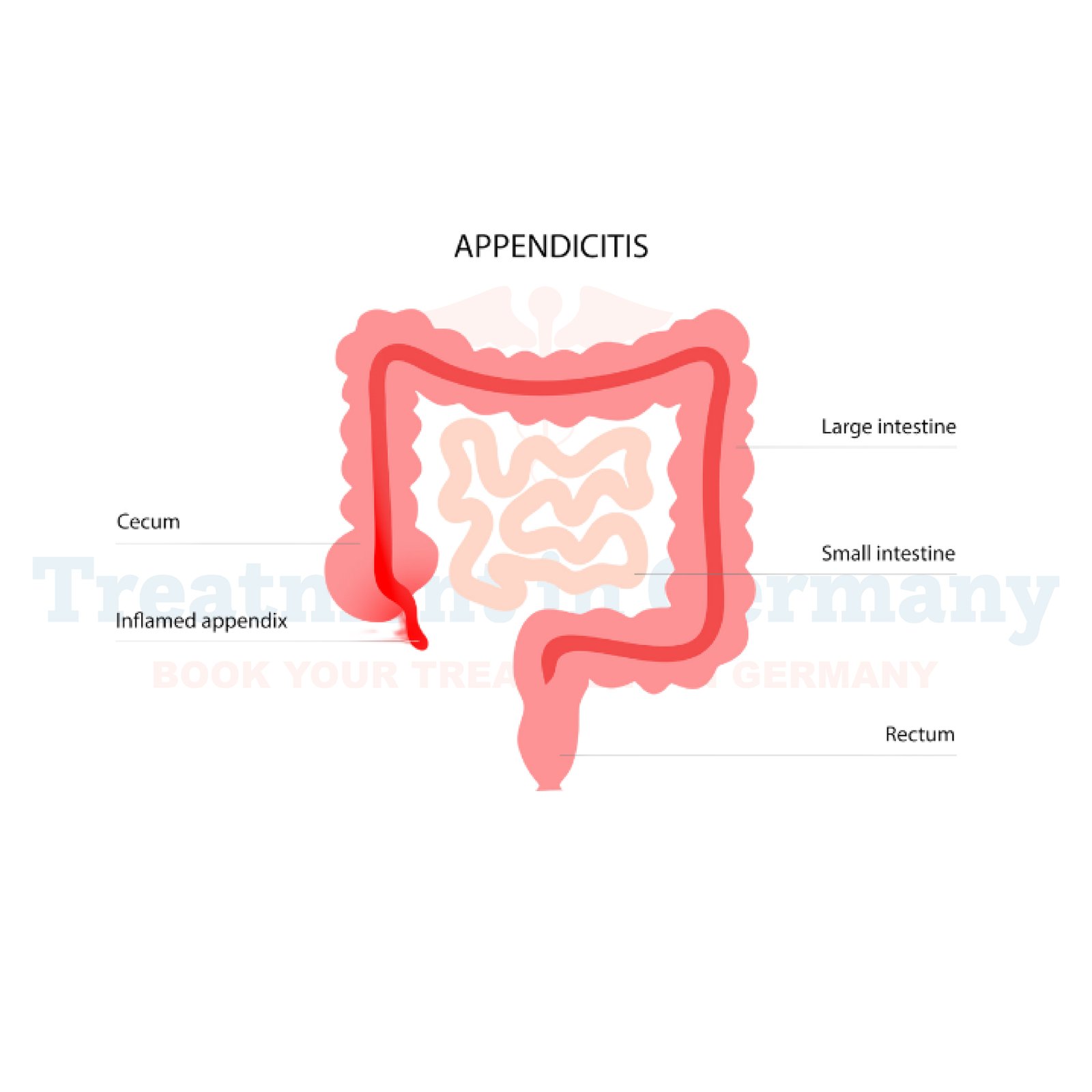Appendectomy is a medical emergency whose management must be done urgently to avoid complications such as peritonitis and septicemia. This condition is well managed in Germany due to superior healthcare technology and advanced treatment plans for this condition.
This article is focused on the understanding of appendicitis, its signs, ways of diagnosis, treatments, and why Germany should be your destination for getting treated.
Appropriate appendicitis is defined as the inflammation of the appendix, which is a small tubular-like structure located in the right lower quadrant of the large intestine. Appendix obstruction by fecal masses, appendix stones, or infection or swelling of the regional lymphatics increases inflammation and the risks of perforation and life-threatening conditions such as gangrene and septic shock.
Symptoms of Acute Appendicitis
Recognizing the symptoms early is critical.
Diagnosing of Acute Appendicitis
Prompt diagnosis involves various assessments:
Differentiating Appendicitis
Certain conditions, such as pelvic inflammatory disease, endometriosis, ovarian cysts, kidney stones, and others, can give similar symptoms to appendicitis. For people born females (AFAB), these tests are important to provide a proper diagnosis.
Treatment Options of Acute Appendicitis in Germany
The treatment options for acute appendicitis in Germany are as follows:
Surgical Interventions
Appendectomy is the usual management to reduce the risk of its severe consequences, such as perforation or peritonitis. Germany offers two surgical methods:
Antibiotics and Pain Relief
Preoperatively, the patient receives antibiotics and analgesics, or any form of anesthesia. During operations, confronted surgery is used to ensure that the patient does not feel the effects of the surgery.
Post-Surgery Recovery
It is common to be discharged within 24 hours after the LAP operation because most are done in the form of laparoscopy. Open surgery cases may need longer hospitalization time than those of less invasive surgeries. Most patients get well in six weeks, although partial recovery may take longer.
Why did we choose Germany for appendicitis treatment?
Advanced Medical Facilities
Currently, the standard of health care in Germany features technologically advanced hospitals. Both abdominal ultrasound and CT scans in German clinics guarantee finely detailed images in the diagnosis process.
Expertise and Innovation
Most surgeons with such expertise operate minimally invasive means like the robotic method.
Comprehensive Care
Along with identifying the subject of illness, Germany’s hospitals also focus on giving a cure for conditions such as septicemia or intestinal obstruction using antibiotics and supportive measures, respectively.
Frequently Asked Questions
How do you know if you have appendicitis?
The first signs are sharp pain in the lower part of the belly, nausea, and poor appetite.
Does everyone get an appendectomy for appendicitis?
Though there may be an antibiotic cure for the mild forms, surgery is the only effective means of preventing recurrence and complications.
Does appendicitis resemble other illnesses?
Yes, certain other conditions, such as inflammatory bowel disease, diverticulitis, and urinary tract infection, may mimic appendicitis.
Why one should go to Germany for appendix surgery?
The clinics provide technology and professional surgeons to make proper diagnoses and provide better treatment in Germany.
When is the best time to act in treating the inflamed appendix?
Lower quadrant pain is always appendicitis; it requires surgical intervention 24-36 hours after onset for fear that the appendix may burst.
👉 Contact us for further information and receive a complimentary consultation.


.webp)
 (1).webp)

.webp)
 (1).webp)


.webp)
 (1).webp)

.webp)
 (1).webp)
